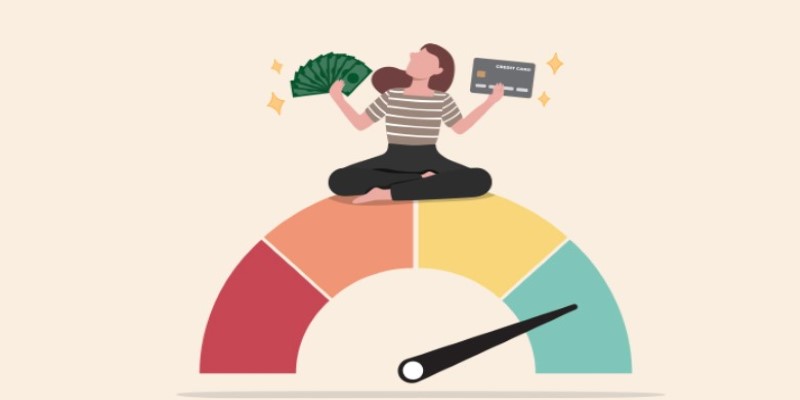Advertisement
Owning a credit card offers both convenience and flexibility, yet its common to wonder if keeping every account open is wise. Factors like annual fees and credit utilization play into these decisions, but there are often advantages to holding onto certain cards. Even if a card seems less essential, strategically keeping it active can improve long-term credit health and enhance financial options.

In this guide, we'll examine scenarios in which retaining a credit card proves beneficial. This will help you get the most out of every account and make decisions that can help your credit profile and your wallet.
Credit cards are a huge score influencer, and holding onto specific cards can impact your credit score in several ways.

Credit scores reward older accounts. The more time you have had a credit account open, the higher your credit score will be. Having a long history on a card benefits your average age of credit, improving your credit score. Closing old cards can shorten your credit history and may also reduce your credit score.
Credit utilization- the percentage of available credit that you are using- is calculated to be around 30% of your score. Keeping a card open tends to increase your total amount of available credit, thus helping to lower your usage rate. For example, if you have $10,000 in available credit across three cards and close the one with the $3,000 limit, the utilization rate may rise enough to damage your score.
Keeping a card open helps you maintain an accurate record of payments made on time, which is an important component of a good credit profile. If you use the card from time to time and settle it at the end of each month, this helps you build a good payment history.
Credit cards often offer rewards, cashback, and perks that can add real value, making it worth keeping certain cards open if they align with your spending habits.
Cards offering cashback or points on categories like groceries, gas, or dining can be beneficial if they match your spending. Even with limited use, these rewards add value and may make keeping the card worthwhile.
For frequent travelers, perks like lounge access, free baggage, or priority boarding can justify an annual fee. Based on your travel frequency, assess whether these benefits outweigh the cost.
Some cards include protections like extended warranties or rental car insurance, which can save money on major purchases. Keeping a card open for these protections is often advantageous for larger expenses.
Holding onto a credit card provides a financial safety net, allowing for easier access to funds in emergencies or when cash flow is tight. In times of unexpected expenses or income fluctuations, having an open line of credit can help avoid high-interest loans or dipping into savings.
Life is unpredictable, and emergencies can arise at any time. An open credit card can act as a buffer for unexpected expenses, from medical bills to urgent home repairs. Keeping a low or no-fee card open gives you a backup source of funds that can alleviate stress in challenging situations.
For significant, planned expensessuch as a car repair or a large purchasecredit cards with a 0% introductory APR on purchases or balance transfers can be advantageous. These cards allow you to spread out the cost of a purchase over time without paying interest. Even if you dont use this feature regularly, keeping such a card open can provide a flexible payment solution when needed.

When applying for a mortgage or a car loan, lenders often look favorably on applicants with higher available credit and lower utilization rates. An open credit card can help maintain a strong credit profile, showing lenders that you have a good balance between available credit and what you actually use.
While keeping a credit card open offers many benefits, costs like annual fees can sometimes make it less attractive. Understanding when these fees outweigh the benefits is essential to making a well-rounded decision.
Some credit cards have high annual fees, which can erode the value of their perks if youre not fully using them. If you have a card with a steep annual fee, but the rewards or benefits no longer align with your spending, it might be time to close it or request a downgrade to a no-fee version. Some issuers will offer to waive the annual fee for loyal customers, so its worth asking.
If you travel internationally often, cards with foreign transaction fees can increase your costs. Reviewing whether these fees significantly impact you will help determine if it's better to switch to a travel card with no foreign transaction fees.
Cards with high interest rates can become costly if you carry a balance. While it's ideal to pay off credit card balances monthly, life circumstances can make this challenging. If a card's interest rate is much higher than your other options, it might be worth considering other low-interest options if you ever need to carry a balance.
Choosing to keep a credit card often hinges on balancing its benefits with potential costs. An open card can strengthen your credit score, offer valuable rewards, and provide a reliable financial backup for emergencies. While fees or shifting financial priorities might prompt reconsideration, many cards offer perks that outweigh the drawbacks, especially when they align with your needs. Ultimately, retaining a card that bolsters your credit profile or adds convenience can be a smart choice. Regularly evaluating your cards value can help ensure they support your financial stability and adaptability over time.
Advertisement

By Juliana Daniel/Mar 16, 2025

By Madison Evans/Oct 21, 2024

By Susan Kelly/Mar 17, 2025

By Darnell Malan/Nov 10, 2024

By Verna Wesley/Oct 20, 2024

By Christin Shatzman/Oct 22, 2024

By Darnell Malan/Nov 30, 2024

By Elva Flynn/Feb 19, 2025

By Elena Davis/Oct 23, 2024

By Christin Shatzman/Apr 15, 2025

By Tessa Rodriguez/Jan 07, 2025

By Korin Kashtan/Jan 15, 2025